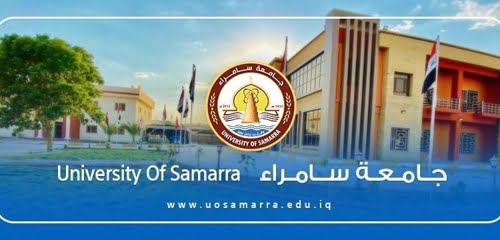Under the guidance of the President of the University of Samarra, Prof. Dr. Sabah Allawi Khalaf Supervision of the Dean of the College of Administration and Economics, Prof. Dr. Nazhan Muhammad Al Sahoo
The College of Administration and Economics at the University of Samarra held an electronic symposium entitled (# Knowledge Economy and Economic Growth in the Arab World – Reality and Trends)
Presented by Prof. Dr. Moneim Ahmed Khudair and Fahd Faisal Ghazi.

The symposium included the basic features of a knowledge economy.
Most notably, as stated in recent studies of advanced economies, the information sector is the principal source of national income. This shift to work in the field of information leads to the emergence of a new professional class that has its weight, which is the category of information workers. It is also characterized by great flexibility and the ability to adapt to the changes and developments in life whose rate of change accelerates and the size of its influence intensifies.
The knowledge economy possesses the superior ability to regenerate and sufficiently communicate with other economies that have become eager to integrate into it so that it is difficult to separate it from them or talk about it without it or refer to it without having a position on it.
The knowledge economy does not know the factors of randomness, and it does not depend on the laws of chance everything is planned, and everything is organized, and everything in it is directed, watched, and monitored.
The symposium provided a quantitative explanation of the essential knowledge economy indicators, which are the education and training index and the information and communication technology index.
Came to conclusions
1- The knowledge economy indicators are in common with the human development indicators in that the human being is the essence of these indicators, as it is the main indicator in the development of the knowledge economy, as well as the purpose of human development.
2- Despite the development that took place in all human development indicators, the development that took place in the education and health indicators was not at the required level, and the reason is the decrease in the proportion of spending on these two indicators.
3- The low rate of spending on education and health indicators in Iraq has made human development at low levels even in comparison with the Gulf Cooperation Council countries
4- The development of human capital affects parallel to the effect of technological progress and leads to the creation of better productive opportunities that lead to an increase in the efficiency of production factors that compensate for the decrease in the productivity of material capital.
It came in the most important recommendations:
1- The need to pay attention to research and development centers, patents, and all technical indicators that lead to the development of the knowledge economy.
2- Increasing spending on human development indicators as it leads to the development of the individual and makes him a productive individual as he enjoys a good health and education level.
3- Providing the appropriate conditions for setting up health and educational investment projects and increasing the proportion of spending on it as a percentage of the gross domestic product, which will lead to an increase in human welfare, as the state will bear the largest part of the costs.
4- Working on the development of human development indicators in Iraq, especially the education and health indicators, to keep pace with developments in developed countries.
5- The necessity of increasing the hours allocated to education by individuals through training courses, providing research and development centers, and providing adequate means of living to enhance the effectiveness of social capital.







